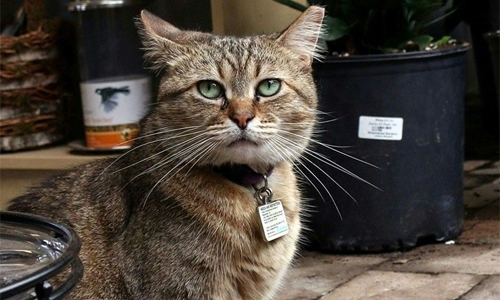Claws in the contract: cats for hire to face down US rats
An army of silent assassins is stalking intruders in homes and offices across the US capital, but unlike Mafia hitmen or ninja mercenaries they have simple terms -- a bowl of milk should do as payment. For these covert agents are cats plucked from Washington’s streets that would otherwise be put down, and their quarry is the burgeoning population of rats and other rodents plaguing the city.
The Blue Collar Cats programme, created in 2017 as part of the city’s Humane Rescue Alliance (HRA), offers felines that aren’t used to human contact and wouldn’t make good pets as a green alternative to traps and toxic chemicals. These mousers for the most part have no interest in socializing and are largely unapproachable, meaning they are ideal for people who just want them for their killer instinct.
“The Blue Collar cat receives from the property owner, in return for deterring rodents from the property, food and water on a regular basis, and shelter in inclement weather,” says Lauren Lipsey with the HRA. “The homeowner just agrees to provide emergency medical care if anything were to happen and just keep a general eye out for the well-being of the cat.” The HRA takes each potential client through a rigorous set of questions -- including whether there are any pets on the property -- to ensure a cat-friendly environment.
“I like animals and even the rats -- I don’t hate them,” Christian Kelleher, the owner of a millwork company and one of Blue Collar Cat’s clients, tells AFP as he takes delivery of two feline employees. “Hopefully these cats will sort of temper their life force a little and they won’t breed and get out of here.” Tim Williams used to throw away a quarter of the birdseed and grass seed where he works at the Greenstreet Gardens store in Alexandria, Virginia, a few miles outside the US capital. But since taking on Blue Collar Cats hire Rue, and making her at home with a litter box and nail scratcher, rat bites in his seed bags are a rarity.
As Rue patrols the potted plants she scares the rodents away, he said. The program has proven to be very effective in containing rodents, but it has also saved the lives of several cats. “Fundamentally, before this program was in existence, these cats fell into a population that were euthanized because they could not be released where they were found and they were not social and adoptable inside,” Lipsey tells.
When the programme started, 12 per cent of the street cats caught in Washington were euthanized, while today the figure has been reduced to nine percent, says Lipsey. Almost 250 mousers have been placed on properties and HRA says it plans on expanding into other areas in the future.
Related Posts

